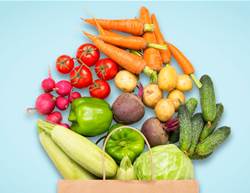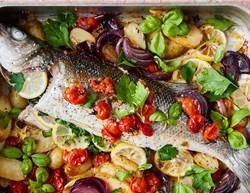You may have incorporated some of these seemingly helpful nutrition guidelines into your lifestyle for years, but we know now that they could be sabotaging your health.
Choosing 'diet' or fat-free foods.
Products labelled “diet” or “fat-free” don’t necessarily have fewer kilojoules or less sugar. “Manufacturers may add other ingredients such as sugar, salt, or artificial flavoring to make up for the lost taste,” says nutritionist Ha Nguyen.
Steering clear of carbs.
“Carbohydrates provide vitamins, minerals, and fibre and are our bodies’ main fuel source,” says dietitian Gisela Bouvier. “When we completely avoid carbs or our intake is minimal for a long time, our glycogen stores become depleted and our bodies start to rely solely on energy from fat, in a process called ketosis.”
Relying on fat as energy sounds like a positive, but this isn’t the healthiest way to lose weight. The accumulation of ketones can lead to headaches, nausea, difficulty concentrating, and high cholesterol. So go ahead and avoid simple carbs like donuts and muffins. But keep complex carbs like whole grains, legumes, fruits and vegetables in your diet even when you’re trying to lose weight.
Eating only salds
Salad itself is extrememly low in kilojoules. “If you eat too little throughout the day, you could slow your metabolism,” says nutritionist Amy Gorin. To amp up your salad, bulk them out with protein like eggs or chicken, some carbs in the form of quinoa or cous cous, orand throw in some healthy fats with a few nuts or a sprinkling of feta.
Choosing deli meat as a source of lean protein.
Yes, deli meats like bacon or ham are a speedy way to fill up. But beware: The World Health Organization recently classified processed deli meats as carcinogens, linked to an increased risk of colorectal cancer. “There’s a more immediate reason to cut back, too, which is that the salt overload in these meats can be dehydrating and bloat-inducing,” says nutritionist Maggie Moon. If you’re looking for a protein source that’s satiating and convenient, Moon suggests opting for a rotisserie chicken instead. Remove the skin to lower the fat and salt content.
Avoiding fruit because it has too much sugar.
“Although fruit contains the natural sugar fructose, it’s impossible to eat so much fruit that it causes weight gain,” says Bouvier. Beyond its filling fibre, fruit has many nutritional benefits, and omitting it from your diet means missing out on important vitamins, minerals and disease-fighting antioxidants. “What’s more, avoiding fruit means you may replace it with a higher-kilojoule sweet snack, like a processed cake or chocolate bar, which may cause weight gain,” she adds.
(Want to pick up some healthier habits? Sign up for FREE to get healthy living tips, weight loss inspiration, slimming recipes and more delivered straight to your inbox!)



.jpg&h=90&w=90&c=1&s=1)






